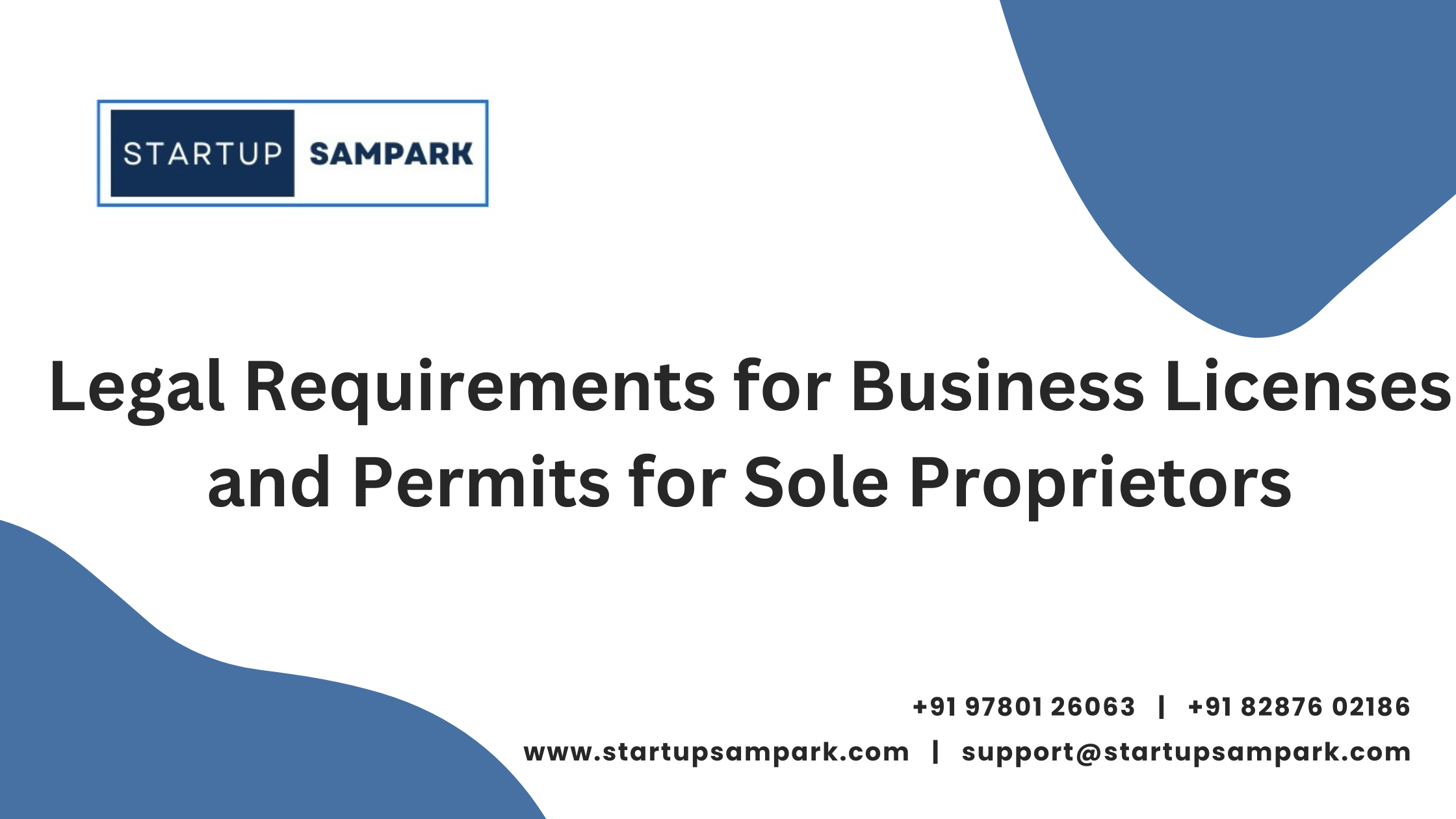Legal Requirements for Business Licenses and Permits for Sole Proprietors
Introduction to Business Licenses and Permits for Sole Proprietors
In India, starting a business as a sole proprietor requires compliance with several legal formalities, including obtaining the necessary licenses and permits. These licenses and permits ensure that the business operates legally and adheres to the regulations set by local, state, and central authorities. The specific requirements depend on the nature of the business, its location, and the industry it belongs to. Failing to obtain the appropriate licenses and permits can result in penalties, fines, or even closure of the business. It is essential for sole proprietors to understand the licenses they need before commencing operations.
Shops and Establishment Act Registration
One of the primary legal requirements for a sole proprietorship is registration under the Shops and Establishment Act. This registration is mandatory for businesses operating from commercial spaces or retail establishments. It is required by local municipal or state authorities, and the registration serves to regulate working conditions, hours, and employee rights. The Act ensures that businesses comply with labor laws concerning wages, leave, holidays, and work conditions. Depending on the state, this registration can be done online or offline, and it needs to be renewed periodically. This license is essential for businesses that involve a physical storefront or office.
-
 Startup Registration (DPIIT Recognition)₹8,850.00
Startup Registration (DPIIT Recognition)₹8,850.00
Goods and Services Tax (GST) Registration
If a sole proprietorship engages in the supply of goods or services and its annual turnover exceeds the prescribed threshold limit, GST registration becomes mandatory. As of now, businesses with a turnover exceeding ₹40 lakhs (for goods) or ₹20 lakhs (for services) must register for GST. The registration enables the business to collect and remit GST, maintain compliance with tax laws, and claim input tax credits. GST registration also makes the business eligible to do business across state borders. It is essential for proprietors to understand their turnover and product/service category to determine whether GST registration is required. GST registration can be done online through the GST portal.
Professional Tax Registration
In several states, sole proprietors are required to pay Professional Tax (PT), which is a state-level tax imposed on individuals earning income from business or profession. The rates and regulations for professional tax vary from state to state, and the registration is mandatory for businesses that employ staff or for the sole proprietor themselves, depending on the state’s rules. The tax is usually paid monthly or annually, and it must be deducted from employees’ salaries if applicable. Sole proprietors must check with local authorities to determine the professional tax obligations based on their state of operation.
Industry-Specific Licenses
Apart from the general licenses like GST and Shops and Establishment Act, certain businesses require industry-specific licenses and permits based on the nature of the business. For example, if a sole proprietor is involved in the food business, they must obtain a Food Safety and Standards Authority of India (FSSAI) license. Similarly, businesses dealing in chemicals, pharmaceuticals, or manufacturing goods might need licenses from regulatory bodies like the Bureau of Indian Standards (BIS), Central Pollution Control Board (CPCB), or Factories Act compliance. Each industry has its own set of regulatory bodies, and it’s crucial for sole proprietors to research and obtain all necessary permits to operate legally.
Trademark Registration and Other Intellectual Property Rights
For sole proprietors looking to protect their brand identity, trademark registration is highly recommended. A trademark helps secure the business’s name, logo, or slogan, preventing others from using it. This can be especially valuable for businesses that rely on brand recognition. Sole proprietors can register their trademark with the Intellectual Property India (IP India) office, and once registered, they gain exclusive rights over the mark. Besides trademarks, sole proprietors can also consider registering patents, copyrights, or designs, depending on the nature of their business, to protect intellectual property and avoid legal disputes.
Startup, India
-
 Startup Registration (DPIIT Recognition)₹8,850.00
Startup Registration (DPIIT Recognition)₹8,850.00















Post Comment